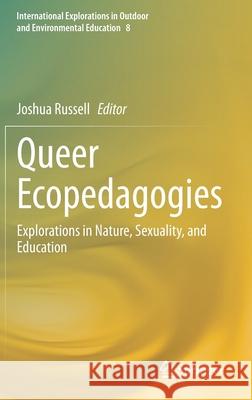Queer Ecopedagogies: Explorations in Nature, Sexuality, and Education » książka
topmenu
Queer Ecopedagogies: Explorations in Nature, Sexuality, and Education
ISBN-13: 9783030653675 / Angielski / Twarda / 2021 / 246 str.
Queer Ecopedagogies: Explorations in Nature, Sexuality, and Education
ISBN-13: 9783030653675 / Angielski / Twarda / 2021 / 246 str.
cena 563,56
(netto: 536,72 VAT: 5%)
Najniższa cena z 30 dni: 539,74
(netto: 536,72 VAT: 5%)
Najniższa cena z 30 dni: 539,74
Termin realizacji zamówienia:
ok. 22 dni roboczych.
ok. 22 dni roboczych.
Darmowa dostawa!
Kategorie:
Kategorie BISAC:
Wydawca:
Springer
Seria wydawnicza:
Język:
Angielski
ISBN-13:
9783030653675
Rok wydania:
2021
Wydanie:
2021
Numer serii:
000781538
Ilość stron:
246
Waga:
0.55 kg
Wymiary:
23.39 x 15.6 x 1.6
Oprawa:
Twarda
Wolumenów:
01
Dodatkowe informacje:
Wydanie ilustrowane











